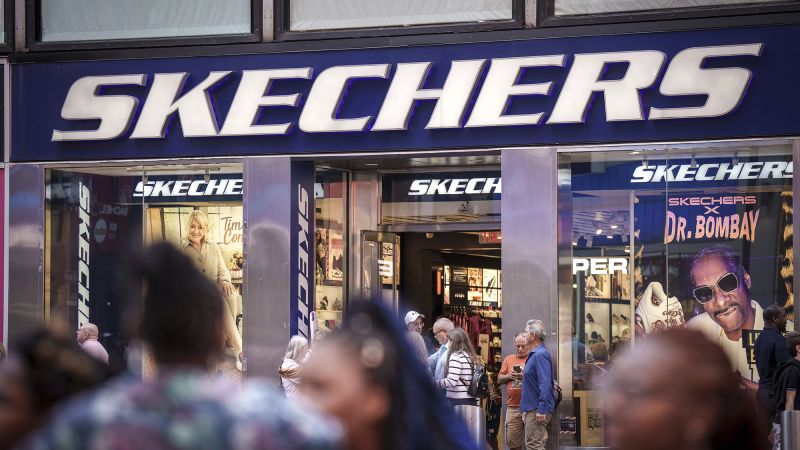In a recent bold move, Skechers is set to transition from a public company to a private entity during a tumultuous trade backdrop marked by ongoing tariffs and trade tensions. The well-known footwear manufacturer has announced a significant agreement with investment firm 3G Capital. According to the deal disclosed on Monday, 3G Capital will acquire Skechers for an impressive sum of $9.4 billion. The investment firm will compensate Skechers’ stakeholders at a rate of $63 per share, representing a noteworthy 30% premium over the current stock price.
This acquisition marks a transformative shift for Skechers, which has long established itself as a prominent player in the global footwear industry. CEO Robert Greenberg emphasized the partnership with 3G Capital, referencing the investment firm’s strong track record in fostering successful ventures. In his statement, Greenberg declared that “Skechers is entering its next chapter in partnership with the global investment firm 3G Capital,” indicating a strategic pivot that seeks to stabilize the brand amid market uncertainties.
Headquartered in Southern California, Skechers operates a network of 5,300 retail stores across the United States, firmly securing its position as the third largest shoe company worldwide. The brand is currently navigating complex operational challenges; shoe manufacturers in the United States face heightened vulnerabilities due to tariffs imposed by President Donald Trump. Notably, these tariffs include staggering import duties reaching 145% on Chinese-made products, alongside a 10% minimum tax on footwear sourced from all other countries. Such tax policies have prompted significant apprehension among retailers and manufacturers alike.
According to data from the Footwear Distributors and Retailers of America, a staggering 99% of shoes sold in the U.S. are sourced from overseas production facilities. Skechers itself is not exempt from this trend, as the company conducts all its manufacturing abroad. Insights from industry analysts reveal that approximately 40% of Skechers shoes are produced in China, with the company’s children’s footwear lines largely dependent on Chinese manufacturing as well.
In light of recent economic uncertainties and the looming threat of increased tariffs, Skechers made a significant decision last month to retract its financial forecasts, citing fears that these tariffs could undermine the business’s stability and operational flexibility. This move to withhold guidance reflects a broader anxiety within the industry as firms grapple with potentially skyrocketing costs that could fundamentally alter their business models.
Adding to these concerns, Skechers, alongside major players such as Nike and Under Armour, has made a concerted plea to the Trump administration. In a collective effort, these companies issued a letter urging the government to apply exemptions for the footwear sector from the imposed tariffs. The footwear giants articulated a dire warning—if left unchecked, the taxation policies could devastate hundreds of businesses, lead to the loss of tens of thousands of jobs, and impose steep price increases on consumers.
“What we are facing is an existential threat,” the letter stated, capturing the urgency of the situation. The signatories expressed their belief that the substantial cost increases associated with the tariffs could push the industry toward a precipice, calling it “an emergency that requires immediate action and attention.”
In summary, Skechers’ strategic retreat from the public market amidst fierce trade battles illustrates the broader struggles faced by the footwear industry. The acquisition by 3G Capital not only signifies a new chapter for the company but also highlights the pressing issues of foreign manufacturing dependence and impacting tariffs that are currently reshaping the landscape of the retail footwear market.



